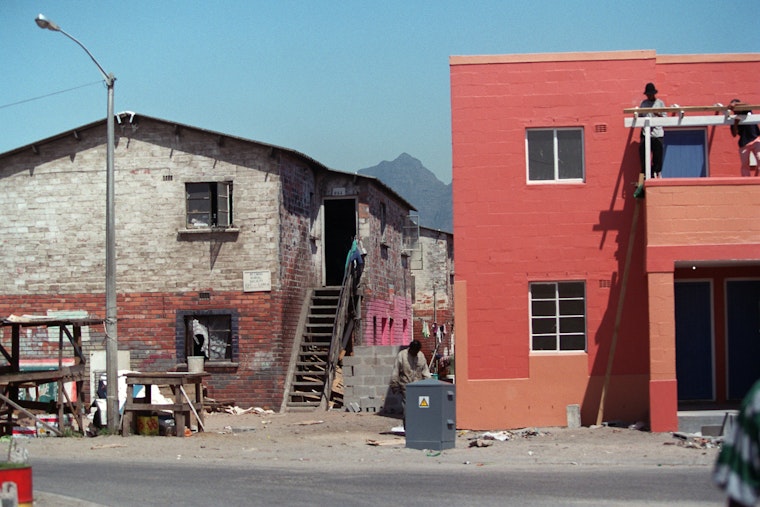How a 20-Year Investment in Housing Helped Transform Post-Apartheid South Africa
By Nhlanhla Mjoli-Mncube

When Nelson Mandela’s African National Congress party was campaigning for South Africa’s first post-apartheid elections in 1994, the party’s platform was based in part on providing housing for black South Africans who had been living in informal settlements, backyard shacks, and highly overcrowded city dwellings as a result of apartheid policies.
By the time Mandela took office, expectations were high. Millions of people needed decent homes, and the president faced the complicated task of rolling out a massive housing subsidy program while transforming his political liberation party into a functioning government.
A major challenge was financing the construction of so many homes at a time when the affordable housing market was considered too risky by most lenders. Mandela’s solution was the National Urban Reconstruction and Housing Agency (NURCHA), an innovative partnership between the South African government and international and domestic donors that offered guarantees to banks that agreed to provide loans to contractors and developers. The Open Society Foundations and the South African government each contributed $5 million in operating costs to launch the agency in 1995. Open Society provided an additional $50 million in guarantee funds.
When NURCHA began, its aim, according to current chairman Khehla Shubane, was to “plug a financing gap” until the markets had normalized and its services would no longer be needed—a process estimated to take between five and ten years. In 2015, the agency commemorated its 20th anniversary.
And while much work remains to be done in the affordable housing market in South Africa, Shubane and his team offer a sense of what’s been accomplished in NURCHA’s most recent annual report—the last before the government consolidates the agency with two others: 1,400 loans totaling R3.4 billion (approximately US$215 million) resulting in the construction of 280,000 houses for more than a million people, as well as large numbers of community facilities like daycare centers, community halls, and other local infrastructure.
But NURCHA’s impact goes well beyond numbers.
Broadening participation in the economy was a major pillar of Mandela’s development plan. Before NURCHA, there were no bridge-finance loans for black or female contractors in South Africa and not many even for white-owned businesses that were small or short on experience. NURCHA changed all that. Its creative finance solutions lowered the risks for banks, incentivizing them to fund low-income housing projects led by people who had no previous credit history.
Armed with concrete examples from the field, NURCHA successfully lobbied for new and better government policies prioritizing diversity. As a result, a new entrepreneurial class was born—one that was varied in color, gender, and size of operation. By 2015, women contractors made up 60 percent of NURCHA’s subsidy housing loan book.
Thousands of contractors, developers, bricklayers, and landscapers benefitted from NURCHA’s inclusive approach, including two women who have gone on to become leaders in their respective fields. Thandi Ndlovu, a medical doctor who served in the African National Congress’s military wing, decided to enter the housing industry because she thought she could deliver affordable homes more efficiently than existing contractors. Today, her company, Motheo Construction, has achieved Grade 9, the highest registration level for a contractor in South Africa and one that historically had been unavailable to women or blacks, let alone a black woman.
Another NURCHA client, Dawn Malotane-Lindsey, received funding and training from NURCHA before following her husband to Ohio and launching NextGen Fuels, a wholesale fuel distributor. This past fall, NextGen was named Minority Business of the Year by the Dayton Business Journal, earning recognition from Governor John Kasich. Malotane-Lindsey mentors women in South Africa and provides annual “Fueling the Future” scholarships in Ohio.
NURCHA cultivated a culture of economic empowerment, offering workshops and trainings for business owners and sponsoring a savings program for clients and potential home buyers. It partnered with Food and Trees for Africa to plant trees in the communities it was helping build. And when South African banks tightened their purse strings as a result of a downturn in emerging markets, NURCHA stepped in to make loans directly, proving that the affordable housing market was a credible commercial venture. Because of its success and commitment to the cause, NURCHA was able to attract support from a variety of partners, including the Overseas Private Investment Company and USAID, among others.
South Africa still faces incredible challenges as a country, including in housing. But NURCHA is an example of what can be achieved when governments, philanthropies, and private sector parties work together to turn a vision into reality.
To mark the occasion of NURCHA’s launch in 1995, Mandela wrote: “It is our hope that development agencies and the private sector will match the lead given by the government and Mr. George Soros.” In so many ways, they did. Here’s hoping they continue to do so.
Nhlanhla Mjoli-Mncube served as NURCHA’s first deputy chief executive officer and later as chair of the agency’s board.